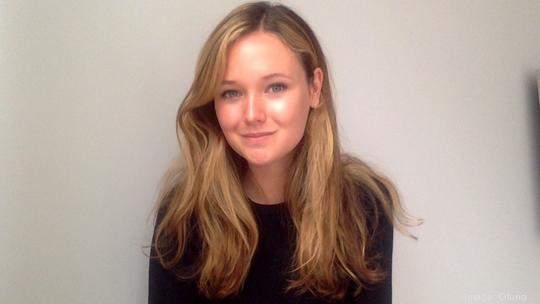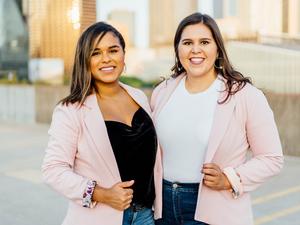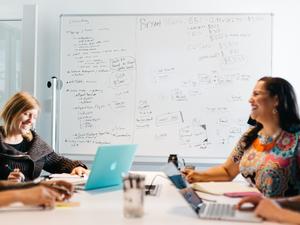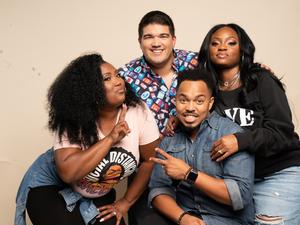
Emmy Hancock calls 2015 the year of the period – a moment when she remembers a lot of talk in the media and among fellow college students surrounding its stigmatization, as well as the legislative and environmental issues that go along with it. Then she remembers the conversation going quiet.
“The idea really intrigued me and I began looking into the issue a little bit more over my time (in college), and there wasn’t very much,” Hancock told NTX Inno.
When she later filed the paperwork to set up Oluna back in 2018, she knew she wanted the business to help out the cause in some way. Now, afforded time by the pandemic, Hancock launched the clothing company last month with a mission of helping women in need and female-led businesses along the way.
“Oluna’s mission is to create a safe and playful space to destigmatize the issue,” Hancock said. “It’s also so important to me that women feel comfortable in their own skin, and so much about period stigmatization comes with shame. There’s no reason for anyone to feel shame about their bodies, especially a natural occurrence.”
Oluna is clothing and accessory company with what Hancock calls an “inclusive and playful” brand designed to help women feel as comfortable in their bodies as she hopes they feel in Oluna’s clothes, as well as keep the clothes and the conversation open to male customers.
“It’s cute; it’s fun; its playful. You know, having your period, it’s just like a nosebleed,” Hancock said. “It’s nothing, it’s not this whole stigmatized taboo. It happens to girls once a month, but it’s fine.”

And as part of its business model, Oluna donates a year’s worth of period products to women in need for every article of clothing it sells. Currently, the company has nine Dallas area homeless shelters it makes donations to – which comes out to about 240 period pads for a year’s supply.
Hancock said while she plans to expand her donation network she plans to keep her focus in the U.S., where she said despite what many think there is still a lot of work to be done about providing sustainable access to women’s health products. Not wanting to stop with just a one-for-one model, which has been criticized for creating dependency, Oluna donate 50 percent of its accessory revenue to research and public policy issues related to periods.
“I want to focus on the United States because many people think that period poverty is just an issue in developing countries, but in fact it’s happening here in our own backyards,” Hancock said.
As Hancock was setting up Oluna she wanted to find other ways to support women. While the design are all created in-house, Hancock has partnered with women-run business to keep her manufacturing and supply chain local, something she said was especially important amid the uncertainties caused by the current crisis. She also hopes to one day employ the women in the shelters that Oluna, as the company grows.
Oluna currently operates through e-commerce. Hancock said at the moment there are no plans to open a physical storefront due to the pandemic, but it’s something she will eventually reevaluate. She said the plan now is to grow the company through its social media marketing and to hopefully land deals with larger retailers to show off Oluna’s products on their shelves.
Hancock also said she hopes that through the company and the R&D and legislative work its donations will help fund will help create change in making period products more accessible – something she said would cost companies about $4.80 per female employee per year to do – and make more women feel comfortable with their bodies.
“The company gives me a platform to speak and the branding gives me a tool to make it fun,” Hancock said. “Instead of one article on period poverty or one nonprofit, this actually allows me to not only care for this mission and actually make a year’s impact on a woman’s life but hopefully make meaningful change.”






